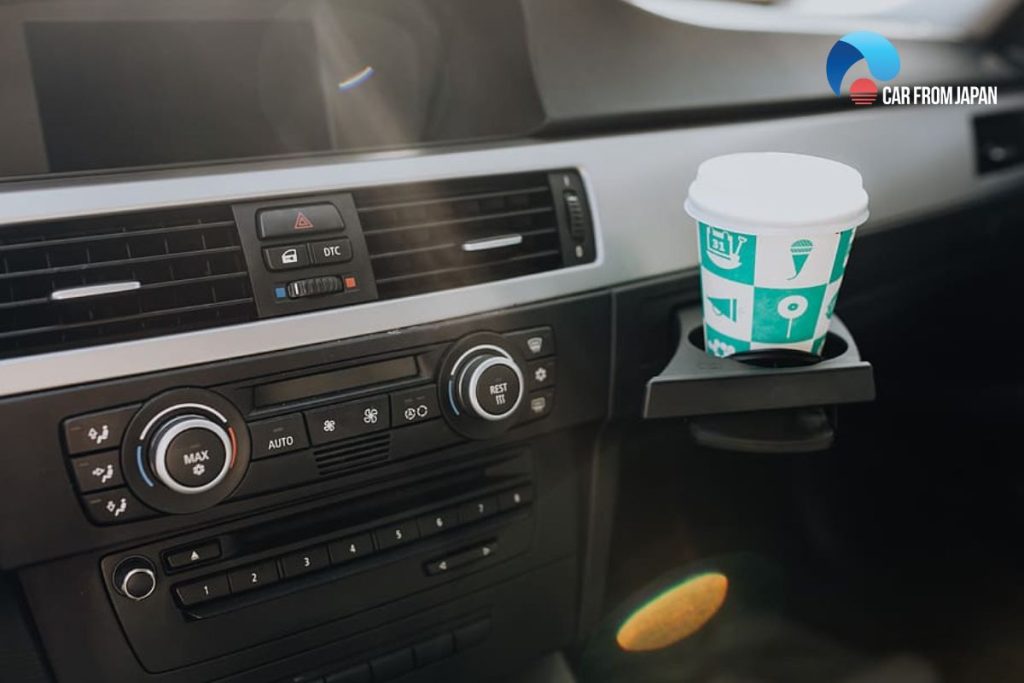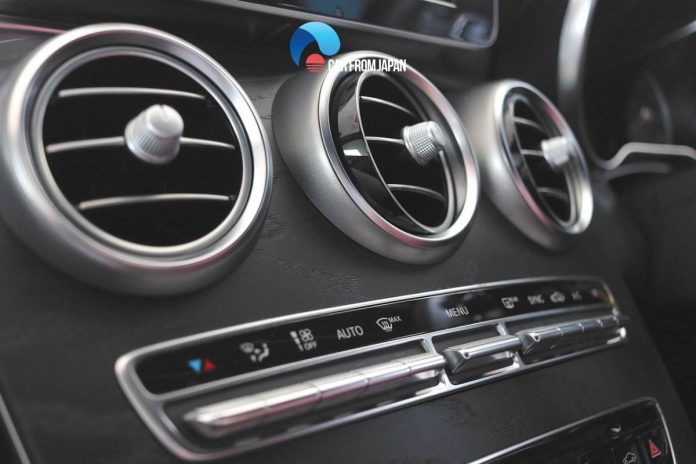You know that turning on your car’s air conditioning in the heat makes you feel cool and refreshed, but did you ever wonder if it has any effect on the engine?
Some people think that running the AC in summer will make your engine hotter because of all the extra work it needs to do. Many others think just the opposite.
According to them, the air conditioning transfers some of the heat from inside a vehicle to outside through vents designed to send the hot air away from passengers (as opposed to keeping them warm).
Which theory is true? Let’s find out!
Contents
- Does a Running Air Conditioner Cool off a Car Engine?
- How To Protect The Car Engine in Summer?
- FAQs on Running The AC in Summer
- Why does my temperature gauge rise when I turn on the AC at idle in traffic?
- Can running the AC prevent engine overheating on steep climbs?
- Why does turning off the AC sometimes lower my coolant temperature on long drives?
- Could using AC in extremely hot weather protect engine components from heat soak?
- Does running the AC cool the engine or just the cabin?
- Conclusion
Does a Running Air Conditioner Cool off a Car Engine?
No, it does not!
And to better understand how air conditioning affects a car engine, here’re the basics of how an internal combustion engine works.
Ignoring any other factors, such as fuel and oil usage (which would depend on driving conditions), running the AC will cause your engine to use more power in order to compress the refrigerant gas that is being cooled.
The extra power used by the AC will cause your engine to be hotter, which could lead to higher operating costs for gas and oil consumption (unless you’re very conservative with air conditioning usage).
With the air conditioning turned on, you will literally hear the sound of the engine because of its rotating harder and faster. It spins at a higher speed to combat the extra heat that the engine is generating.
What’s more, a car engine is designed to work best in a maximum temperature between 195 and 220 degrees Fahrenheit. Running the AC adds to that temperature, making your engine less efficient.
But don’t worry too much. These side effects of using the AC in summer are usually minimal and won’t cause major damage if you take care of the engine properly.

SEE MORE: Car Breakdowns Problems Happen In Summer
How To Protect The Car Engine in Summer?
So where does this leave us? In general, running the AC will increase your car’s power usage, with a corresponding decrease in fuel efficiency. But you can still enjoy a cool ride without affecting the engine adversely.
A good way to avoid the negatives of running the AC in summer is by trying a novel approach: using it not as an internal cooling system but rather for its air conditioning function.
If you are going to drive a short distance, turn it on for a few minutes when the car is idle in the driveway. This will pre-cool your car and keep the interior cool during the short trip.
Another good option is to open windows when it’s not too hot out. Don’t forget that you can also run your air conditioner for a short period of time before getting on the highway, and then turn it off as soon as you start driving.
That way, you’ll enjoy the benefit without having to worry about any negative side effects.
FAQs on Running The AC in Summer
Why does my temperature gauge rise when I turn on the AC at idle in traffic?
Because the AC condenser dumps extra heat into the radiator area, reducing cooling efficiency.
If your cooling fan or radiator isn’t working at peak performance, heat builds up quickly.
Can running the AC prevent engine overheating on steep climbs?
It depends. The AC fan might aid airflow, but the added engine load from the compressor can also push temperatures higher under stress. Net effect varies by vehicle and condition.
Why does turning off the AC sometimes lower my coolant temperature on long drives?
Turning off the AC reduces engine load and allows more airflow through the radiator (since the condenser isn’t dumping heat in front of it), giving the engine a chance to cool more efficiently.
Could using AC in extremely hot weather protect engine components from heat soak?
Indirectly, yes. If the AC activates cooling fans earlier or keeps under-hood airflow circulating, it can reduce local hot spots that damage sensors or wiring.
Does running the AC cool the engine or just the cabin?
Primarily just the cabin, any cooling effect on the engine is incidental and highly situational. In some cases, it may even work against engine cooling.
Conclusion
Running your air conditioner on hot days can have some negative effects on a car engine. However, it’s quite normal and you can keep running the AC in summer!
If the engine overheats, take the car to a repair shop because there could be other internal problems.



